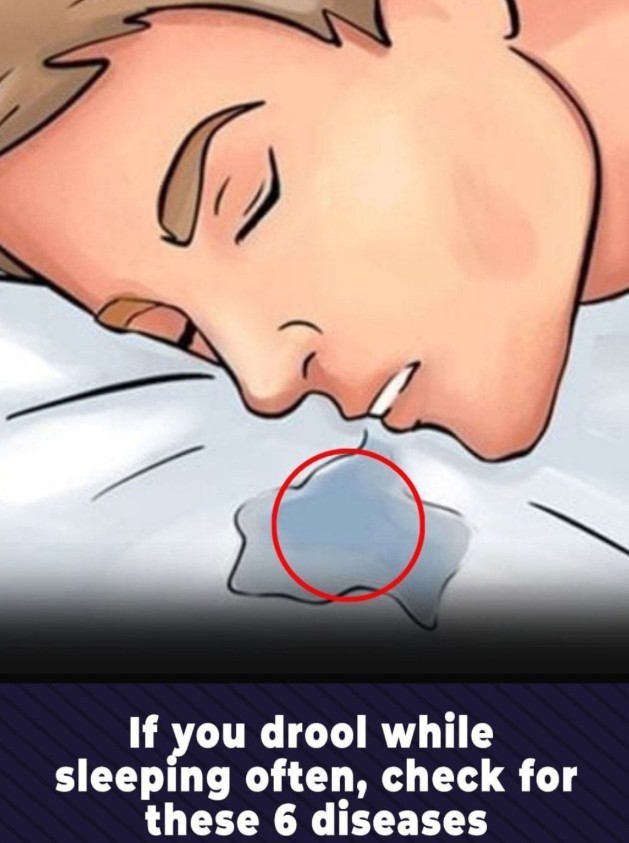Introduction
Waking up with a wet pillow? It might seem embarrassing or trivial, but frequent drooling while sleeping—known medically as sialorrhea or nocturnal hypersalivation—can sometimes signal more than just a funny sleep habit. If it happens often, accompanied by other symptoms, it could be a sign your body is trying to tell you something important. This article outlines six diseases that are often linked to adult drooling during sleep, explains how and why they’re connected, and what you should do about it.
Why It’s Worth Paying Attention
Occasional drooling in sleep is fairly common—especially if you’re extremely tired, sleep on your side or stomach, or have a stuffy nose. However, when drooling becomes frequent, consistent, or accompanied by other signs such as mouth breathing, snoring, sleep fatigue, or neurological changes, this may point to underlying issues. Research on drooling during sleep shows links with: aberrant muscle control, mouth‑breathing patterns, airway obstruction, GERD, neurologic disorders, and more.
Because the salivary glands, throat musculature, airway, and nervous system all collaborate during sleep, a disruption in any of those systems can result in drooling out of the mouth rather than being swallowed.
The 6 Diseases to Consider
1. Obstructive Sleep Apnea (OSA)
What it is: A condition where the airway repeatedly collapses or is obstructed during sleep, causing breathing to stop or become shallow.
How it links to drooling: Mouth breathing becomes more likely when the nose or airway is obstructed. The jaw may relax and part, saliva pools, and the side or front of the mouth becomes an escape route. Some studies also link OSA to increased saliva production as part of airway reflexes.
Clues to look for: Loud snoring, gasping or choking at night, frequent waking, daytime sleepiness, high blood pressure.
What to do: If you suspect OSA, ask your doctor about a sleep study. Managing OSA may reduce drooling.

